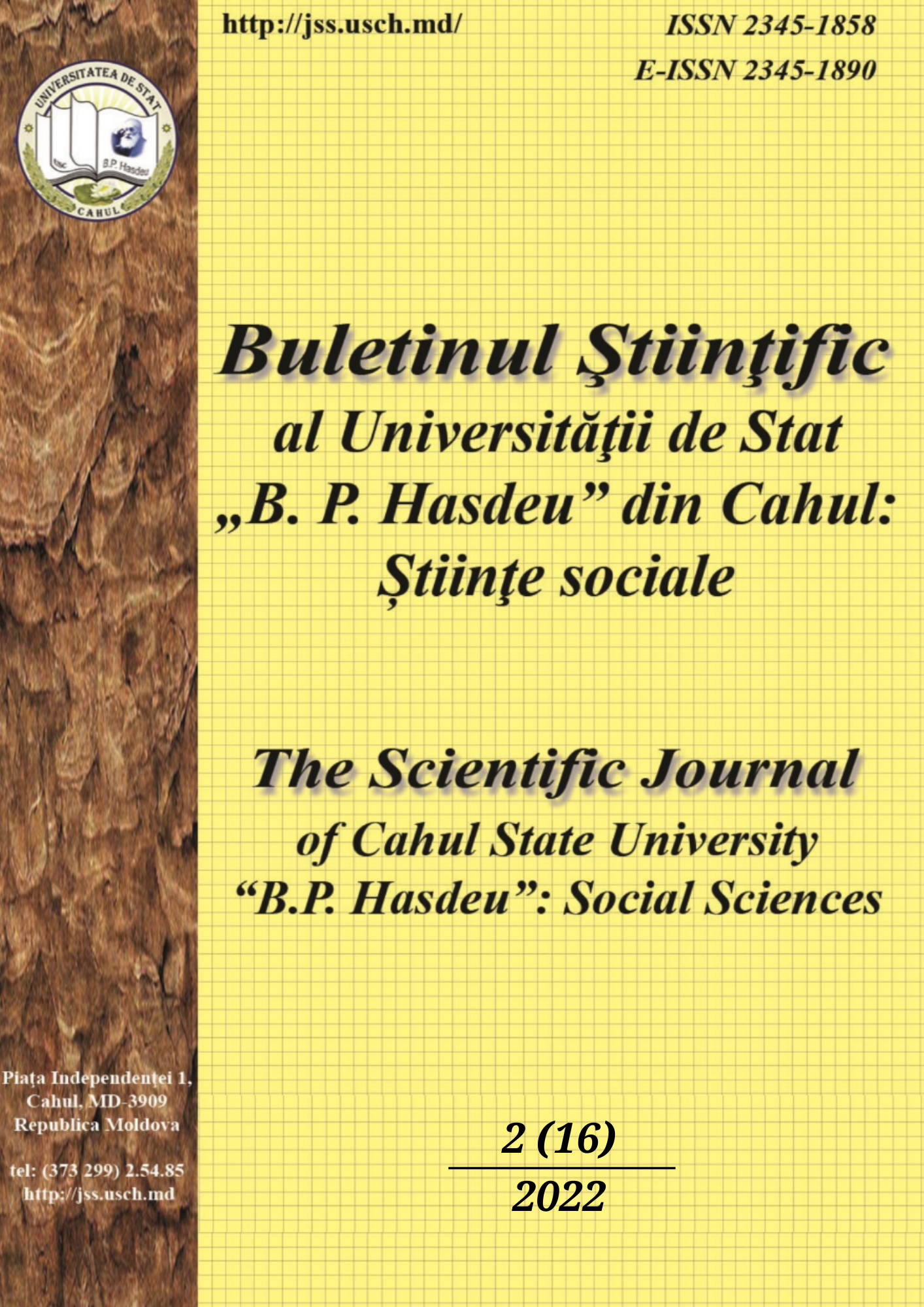POLITICA NAȚIONALISMULUI: INFLUENȚA POLITICII SOVIEȚICE ȘI A MIȘCĂRILOR NAȚIONALISTE ASUPRA IDENTĂȚII NAȚIONALE ÎN MOLDOVA
THE POLITICS OF NATIONALISM: THE INFLUENCE OF SOVIET POLICY AND NATIONALIST MOVEMENTS ON NATIONAL IDENTITY IN MOLDOVA
Author(s): Kimberly OSBERN, Vasile AndriesSubject(s): Inter-Ethnic Relations, Politics and Identity
Published by: Universitatea de Stat „Bogdan Petriceicu Hasdeu” din Cahul
Keywords: Republic of Moldova; Soviet Union; Romania; national identity; nationalist movement; soviet policy; unification; idependence;
Summary/Abstract: Prior to being annexed into the Soviet Union in 1940, Moldova had been united with Romania. Between the years of 1940 and 1991, when Moldova gained independence from the fallen Soviet Union, Soviet linguistic and migration policy influenced the Moldovan people and, coupled with the rise of nationalism, succeeded in creating a distinct Moldovan national identity. In 1991, after independence, it was unclear whether Moldova would look to its recent history and unite with Romania. The influence of sub-nationalist movements, a Russian military threat, and claims of Romanian irredentism all influenced Moldova’s decision to remain independent from Romania. Analyzing existing literature, this article first outlines Soviet policy’s role in the creation of the Moldovan state. This article then highlights how nationalism strengthened the Moldovan identity, and how sub-nationalist movements threatened Moldovan sovereignty. Lastly, this article explores Romanian-Moldovan relations since the fall of the Soviet Union and analyzes the likelihood that Moldova and Romania will unite in the future.
Journal: Buletinul Științific al Universității de Stat “Bogdan Petriceicu Hasdeu” din Cahul: Științe Sociale
- Issue Year: 2022
- Issue No: 2
- Page Range: 62-69
- Page Count: 8
- Language: English

